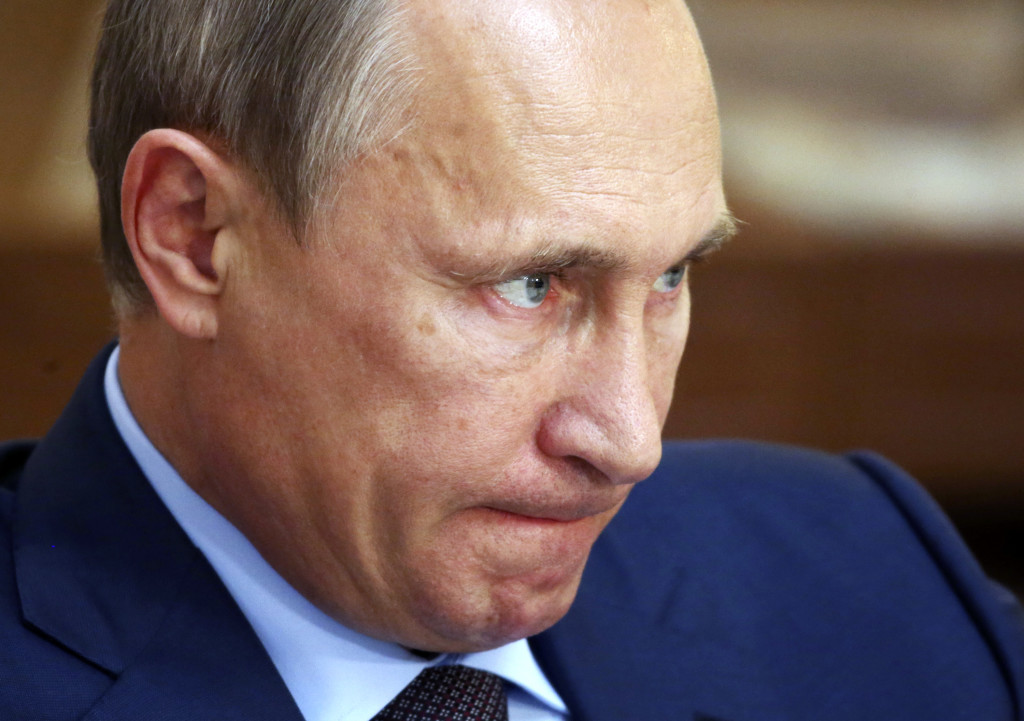New Russia Bill Targets “Undesirable” Foreign Organizations

January 21, 2015
Share
On Tuesday, Russia’s parliament took the first steps towards approving a new law that would prohibit the activities of “undesirable” foreign organizations viewed as threats to national security.
The bill would create a list of foreign organizations seen as a “threat to the defense capability or security of the state, or to public order, or to the health of the population.” Russian authorities would be able to freeze the organization’s assets, and penalize its employees with fines or up to eight years in prison.
“We just want to create legal resources in case threats to our security arise,” Anton Ishchenko, a lawmaker who co-wrote the bill, told The Moscow Times. “We have rockets in our military arsenal, but that doesn’t mean we are going to use them against potential enemies.”
The proposed law comes during an ongoing crackdown on dissent and opposition in Vladimir Putin’s Russia. A series of laws enacted in the past two years have made it harder for Russians to assemble, to publish criticism on the Internet and to carry out political or human rights advocacy, according to analysts and human rights groups.
Tanya Cooper, a Russia researcher at Human Rights Watch, told FRONTLINE the reference to “undesirable organizations” is worryingly broad and vague. “The way it’s phrased — foreign and international organizations — it doesn’t say whether they’re commercial organizations, companies, firms, or non-governmental organizations,” she explained. “So it potentially targets hundreds or thousands of foreign organizations working in Russia.”
Both Cooper and Leon Aron, a Russia scholar at the American Enterprise Institute, pointed out the language of the bill is so broad that commercial companies like McDonalds, Pepsi, or Ernst & Young could get caught up in it. (Last August, four branches of McDonald’s were closed in Moscow for “sanitary violations,” a move viewed by critics as retaliation for sanctions.)
“What’s even more alarming is the law doesn’t provide any court oversight over the decision by the prosecutor’s office to decide which organization is labeled ‘undesirable,'” Cooper added. The bill would also penalize Russian citizens or organizations that associated with “undesirable” foreign organizations.
“This strikes me as a sort of emotional outburst by Putin [in response to Russia’s economic hardships],” Aron told FRONTLINE. He said the bill could be viewed as an attempt to get foreign multinationals to pressure their respective governments to ease sanctions against Russia.
Lawmakers voted 384-2 to approve the bill on its first reading, but it will need to pass two more readings before being signed by Putin.
“At other times, I would say this was a trial balloon,” Aron said. “But at this point, it is so consistent with the tenor of [Putin’s] recent statements. I think this will pass.”
Related Film: Putin’s Way
FRONTLINE investigates the accusations of criminality and corruption that have surrounded Vladimir Putin’s reign in Russia.

Related Documentaries
Latest Documentaries
Related Stories
Related Stories
Explore
Policies
Teacher Center
Funding for FRONTLINE is provided through the support of PBS viewers and by the Corporation for Public Broadcasting, with major support from Ford Foundation. Additional funding is provided the Abrams Foundation, Park Foundation, John D. and Catherine T. MacArthur Foundation, Heising-Simons Foundation, and the FRONTLINE Trust, with major support from Jon and Jo Ann Hagler on behalf of the Jon L. Hagler Foundation, and additional support from Koo and Patricia Yuen. FRONTLINE is a registered trademark of WGBH Educational Foundation. Web Site Copyright ©1995-2025 WGBH Educational Foundation. PBS is a 501(c)(3) not-for-profit organization.





















